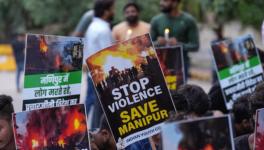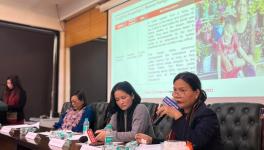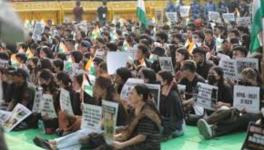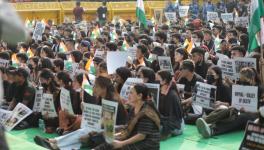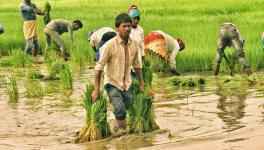Outnumbered Meitei Pangals Fear Being Forced to Take Sides
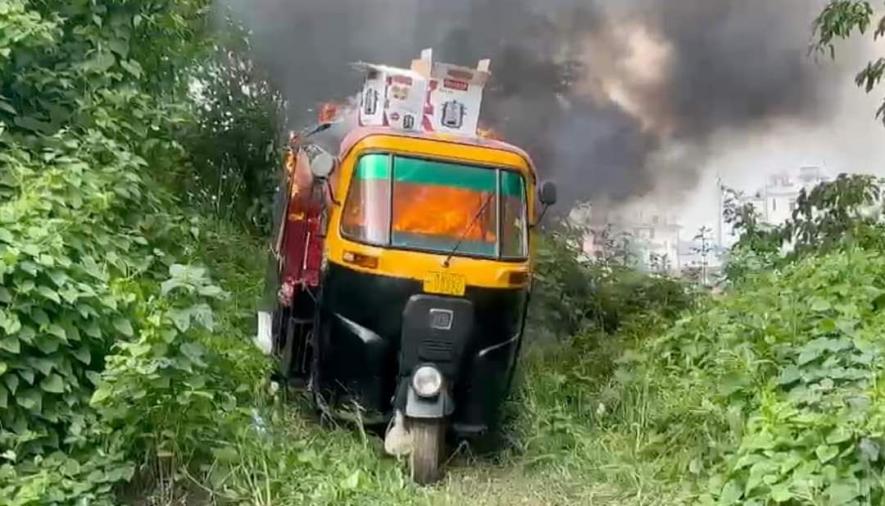
Auto set afire in Manipur in August.
Imphal: On 12 August, a mob set ablaze an auto-rickshaw of a Pangal, or Meitei Muslim, in Manipur’s capital Imphal. The mob accused the driver, Muhammad Tiken, of ferrying goods—clothes and other items—for Kukis, though he said they were essentials for his relatives in Churachandpur. The mob sent a clear message to the Muslim community of strife-torn Manipur by seizing the goods and then setting the auto-rickshaw on fire.
“We have been approaching all authorities. We feel threatened and insecure. We want the BJP [Bharatiya Janata Party] to know that there are Muslims in Manipur, take note of our problems, and save us,” says Mohammad Raees Ahmed Tampak, spokesperson of the United Meitei-Pangal Committee.

Raees Ahmed Tampak.
More than 1,000 Pangals live in Churachandpur, a region cleared of all Meiteis since 3 May. Now, this small Muslim minority, caught in the crossfire between the Meiteis and the Kukis, is struggling to make ends meet. “In Churachandpur, we are struggling for essentials. We cannot take goods into the district,” says Tampak.
Their helplessness has triggered the Pangals to speak out at last. “Who are we? Nobody! We know that. We are living, but our life has changed,” Tampak says.
Whenever goods are ferried from the Imphal Valley—whose Kuki population was also forced to flee to the tribal-dominated hill regions of Manipur—the Meiteis assume they are meant for the Kukis.
What we see in Manipur is the old war tactic of starving the enemy by blocking roads and highways and cutting off supplies.
On 24 August, a vehicle carrying essentials to Churachandpur from Imphal was stopped in Moirang in the Bishnupur district. Earlier home to mostly Meiteis, parts of Bishnupur now fall in a buffer zone the State has created to keep the two warring communities apart. A mob harassed the Pangal vehicle driver and seized his goods.
The occurrences of harassment are still sporadic but gaining momentum as tensions between the Kukis and Meiteis persist. Manipur’s Pangal community is just 8.4% of the population, but its members are growing worried about their safety.
“We are not responding to pressure because we cannot fight or stand up. If we react, they will take revenge. We are a tiny community and know we are weak. It won’t even take 10 minutes to finish us off,” says a harried-sounding Tampak.
A blame game between the Kukis and the Meiteis over who sparked the violence—and their complete separation—has gone on since 3 May. Yet, the Pangals were insulated from the war of words and physical attacks, despite reports that they aided Kukis in Imphal and Meiteis in hill districts in the early days of May and after that.
At the start of this conflict, Pangals enjoyed the confidence of both communities, and they were still “allowed” to access the hills and the Imphal Valley—but without their goods, even essentials.
But now, both communities are turning on the Pangals. Sirzia, a Pangal teacher from Kwatka town in Bishnupur, says the Kukis accuse his community of sharing information about the whereabouts of Meiteis, leading to targeted attacks against them.
In the wee hours of 5 August, three Meitei men were killed, allegedly by the Kukis. The three had reportedly returned from a relief camp to Kwatka late in the night on 4 August and were dead within hours. The blame for having shared their location fell on the Pangal neighbours of the deceased, making them prime suspects in the eyes of the local Meiteis.
“The Muslims must have told them. How [else] is it possible [that the Kukis knew the Meiteis were in the area]? The Muslims tipped off the Kukis about their return,” says Sunil, who lives in Kwatka.
Kwatka town has a substantial Pangal population. Going by government records, they account for around 13,500 voters, compared with about 1,500 Meiteis and just 15 houses of those from the Kuki community.
“We are ignoring the triggers and instigation, but how long will this continue? It is affecting us. We do not want to take sides—we want peace. If we take sides, our brothers in Churachandpur and Moreh will suffer,” says Tampak.
The Pangal fear of being forced to take sides is real, although there is no longer widespread violence in Manipur. While incidents of arson and killing have been isolated to the remote areas, it does not mean the tensions between the Kukis and the Meiteis are over. Both communities now “seek support” from other communities living in the State.
Indeed, now that the Meiteis view the Pangals as Kuki informers, they see them as a hindrance to their tactic of starving out the enemy. In turn, the Kukis are in no mood to allow unhindered highway traffic. The only social group that moved freely between the hills and Valley, the Pangals, are caught in this crossfire.
Recently, Moirang resident Ali, a Pangal, was stopped and questioned on his way to Churachandpur with a few household items for his family. He says the men who blocked his path told him: ‘You should consider Kuki the enemy. They are our enemy. Why are you taking essentials [for them]?’ It has become much more difficult to move around with goods.
Another member of the United Meitei-Pangal Committee explains how the conflict has split the Pangals, too. A few Pangals are closer to Kuki due to proximity or sympathy, while others lean more towards the Meiteis for the same reasons.
One outcome of the Pangals sharing space with Kukis in Kwakta has been that essential supplies could find their way there. But this is no longer “allowed”. Earlier, they could pick up rice by the quintal [100 kilos], but now the limit is 10 kilos—a fourth of what the Indian government provides as subsidised monthly rations to the poorest family of five.
But organisations of the Meiteis appear adamant: They want the Muslims of Kwakta to fill out a form at the “Meitei Pangal Intellectual Forum”. It records the list of items and quantities of each item the Pangals plan to bring back from Imphal.
Sirzia says, “The Meira Paibis check the items and quantity and seize any ‘extra’ items.”
Hawk-eyed vigilantes scrutinise vehicles passing through the Valley and entering the hills. Earlier, the checking was done at one point in Bishnupur, but now Moirang—a town closer to Kwakta—also has a checkpoint, says Leima, a volunteer at one checkpoint.
As a result, Kwatka is running out of household items and money. According to Sirzia, most items are unavailable now, not just for the Kukis but for Pangals, too. Essentials from Imphal have been in short supply since May as incomes stopped flowing in after the conflict. “Locals are running out of everything,” he says.
The Pangals in the villages of Bishnupur primarily work as drivers or daily wage labourers. “Some Pangals thought bringing large quantities of goods to sell in local markets would get them an income. Also, not everyone has a private vehicle to ferry goods from Imphal, so they would depend on neighbours to bring essentials. But with the form we have to fill out and limits set on quantities, even that has stopped. It is affecting the Muslims as well,” says Ali.
That is why most Pangals would disagree with Manipur Chief Minister Biren Singh’s recent announcement that peace prevails in the Valley. “If everything is okay, why is there violence and killing? The central government knows everything, so why is it not solving the issue?” Tampak asks.
[Photos by Aaisha Sabir]
The author is an independent journalist who has visited Manipur to report on the ongoing violence. The views are personal.
Get the latest reports & analysis with people's perspective on Protests, movements & deep analytical videos, discussions of the current affairs in your Telegram app. Subscribe to NewsClick's Telegram channel & get Real-Time updates on stories, as they get published on our website.









